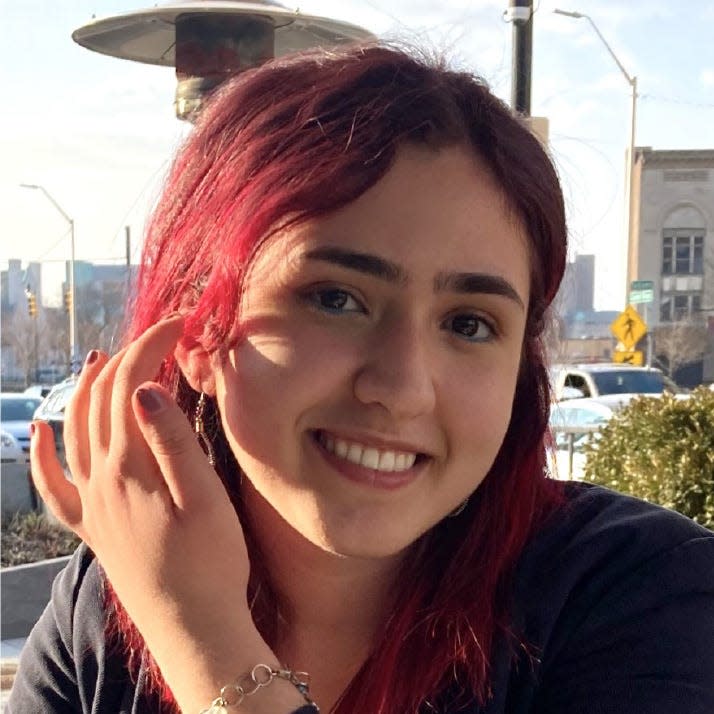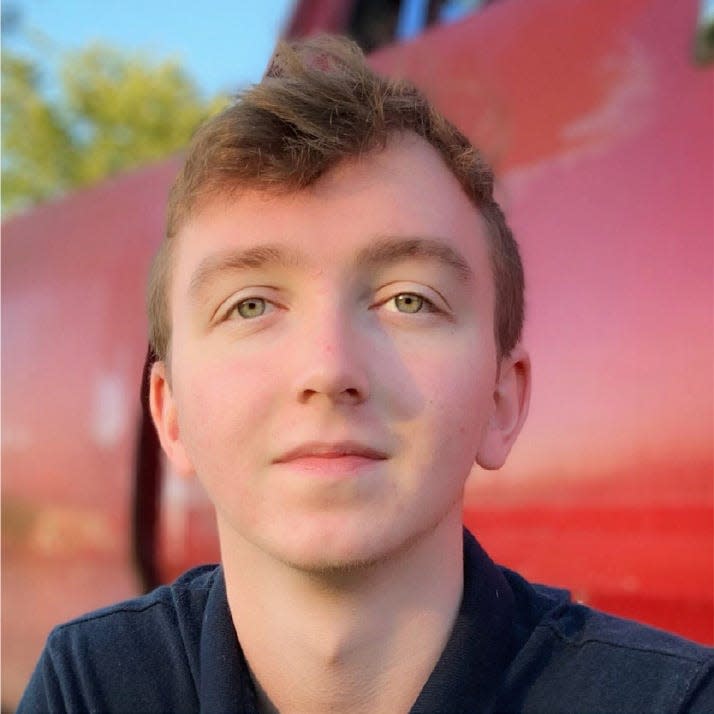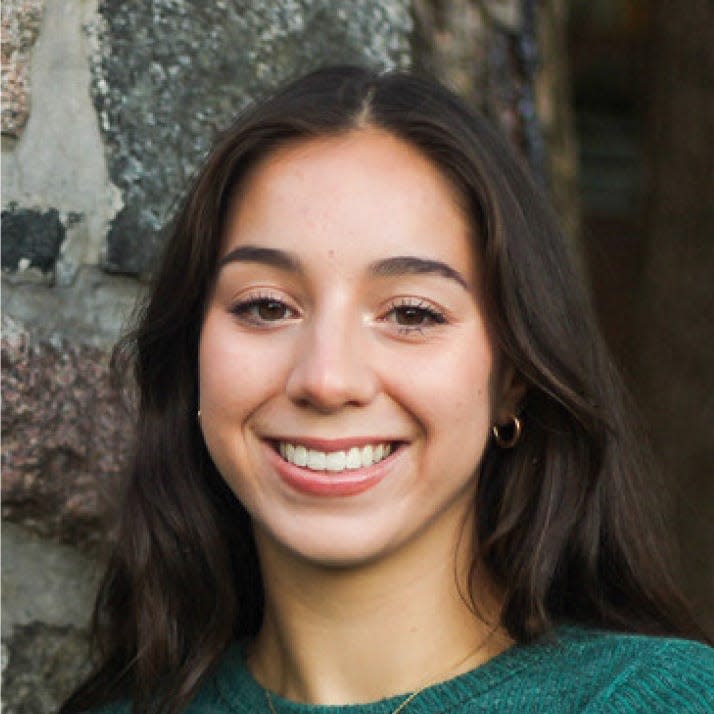LAFCU essay winners share their high school COVID-19 pandemic experiences
High school seniors from across Michigan write to win scholarships each year through the LAFCU Write to Educate essay contest. Not only can these students receive a scholarship toward higher education, they can also choose an organization that LAFCU will donate to on their behalf.
This year, the essay topic was to examine their experiences during the COVID-19 pandemic and reflect. And the winners are:
Aanchal Jain, Okemos High School

The year was 2020. The year when everyone’s life changed. What started as an extended spring break turned into a year-long journey of navigating the pandemic. The COVID-19 pandemic had forever changed the world and, surely enough, disrupted the course of millions of high school students across the nation.
Being a sophomore in high school when the pandemic began, life was great the first few months. The SAT had been canceled. There were no final exams. What else could be better for a 15 year old, right? But, the pandemic continued. And after learning that my junior year was entirely online, I felt as if my high school years were dissolving into nothingness.
Although virtual school was a little unusual the first few weeks, it eventually became a routine: Wake up, join Zoom classes for four hours, finish homework, spend time with family, repeat the cycle the next day. I quickly got bored of this pattern, though. The loss of motivation in classes and the aimless afternoons were getting to me. Yes, I was starting to feel the effects of the pandemic. I yearned for interactions and extracurricular involvement to boost my lost motivation.
With the extra time I had in the afternoons due to the reduced schedules in online learning, I decided to browse for virtual opportunities. The desire to find new experiences led to me figuring out what I wanted to major in in college and potential career choices I could undertake.
I was able to expand my passion for card-making to elementary students by hosting virtual card-making classes. I had the opportunity to conduct a research project and submit it to multiple virtual research fairs. I got to volunteer at a research lab, learn many computational biology methods, and work on a computational project.
The pandemic nearly changed my viewpoint on the biological sciences because of the time I had on my hands to explore research, volunteerism, and medicine. My future directions, before the pandemic started, were not clear, but the extra time I had helped me solidify my career choice in healthcare.
Even though I may have missed out on homecoming festivities, holiday spirit week, and one-and-a-half years of high school, I would say I still had an equally meaningful high school experience. I was able to use the time to find different opportunities that I may have never come across if it were not for the pandemic.
Although the pandemic has changed our way of life, it has provided everyone with a moment of reflection on the importance of valuing in-person connections, especially in school and at the workplace, and spending time discovering one’s passions. For me, the one year we all had at home changed the path for the rest of my life. As the virus diminishes, I am grateful for the opportunity to be back in-person at my high school, progressing through a relatively normal senior year.
The pandemic has made me realize not to take anything for granted. Rather, when faced with a sudden, peculiar situation in life, one should take full advantage of it.
Berelian Karimian, Okemos High School

The world has been shaken by the effects of a pandemic and, as a high school student, my secondary education experiences were like no other generation’s. The virtual classroom caused high schoolers across the world to adapt to a new learning environment. Although some were able to learn more effectively at their own pace, others struggled to connect with the material in the online format. Typical school events were canceled, and students were stripped of the most memorable aspects of high school. Sporting events, dances, music performances, club meetings.
However, throughout this, our creativity prevailed. Virtual meetings, concerts, support groups, as well as socially distanced or limited audience sporting events took place. We eagerly searched for connectivity in a world where connectivity was restricted. The silver lining in a virtual world was being able to go places you could otherwise never go. I was able to participate in online discussion groups and lectures with people from around the world. Despite the enforced distance, people were able to get closer to each other than ever before. Hearing opinions, perspectives, thoughts, and more from diverse people was a unique opportunity that I might not have sought out otherwise. It brought a sense of hope and encouragement to me that the world could still be in one piece despite the sudden shock that the pandemic brought.
Although I was able to connect with and learn from people virtually, not being able to see friends and family in person impacted my mental health negatively. I had just moved to Michigan at the start of the 2019-2020 school year and was already struggling with the transition that came with moving. Being suddenly cut off from my peers once again with the start of the pandemic proved to be difficult and ultimately impacted my ability to make new friends.
As a person who relied on human interactions in order to stay energized, I was frustrated with myself and the world around me. However, as time went on, I learned to enjoy my own company as much as I enjoyed others’ company. I took care of myself by participating in activities that brought me joy. Whether that be going on bike rides or playing music on my piano, the increase in free time allowed me to explore my interests more than ever before.
OPINION: Mental health help for our kids could be just outside the classroom door
My interest in politics especially bloomed during quarantine. With the constant politicization of the virus, masking and vaccines, it was hard to ignore the political climate around me. I regularly watched the news and actively engaged in political discussion online. The varying views on how to handle the crisis piqued my interest. So much so that it encouraged me to go into politics as a career. The pandemic made me wonder what I could do to help the millions of people who were struggling. Seeing politicians with immense powers not always using them for the greater good encouraged me to be the change I want to see.
Although COVID-19 changed the typical high school experience, it also encouraged greater effort for connection and self-growth within the typical student. I was able to reflect on my interests and goals throughout this period of physical isolation in a unique way. With the new experiences I gained online and in the real world, I will carry the pandemic’s legacy with me for the rest of my life.
Gavin Isles, Fulton High School

The second week of March 2020 brought with it the many mandates surrounding COVID-19. Day two of track practice would not see a day three. Many of us had heard the rumblings in the news about COVID-19 in China, but I don’t think I gave much thought to its impact. Maybe I was naïve, or just being seventeen. The word pandemic was something you read about in history books or science fiction novels.
Having the ability to transition to online learning seemed awesome. As a computer nerd, I felt that I would have an edge. Sleeping in and zoom class seemed like a schedule anyone would love. Let’s just say, the novelty wore off in about two weeks, and then fear set in as the unknowns of this pandemic unveiled themselves. Where do we find masks? Why is there no toilet paper? What is a ventilator? The nightly news televised semi-trailers full of the deceased. Stories of the young and old alike who were falling victim to the illness were on television constantly.
READ MORE: We need a roadmap to controlling COVID-19 as endemic
The first week in April, my family and I got sick. With no tests, we didn’t know if we had COVID-19, but it was scary as it seemed everyone was dying. One long day of online classes ran into the next. Some teachers weren’t accustomed to online teaching, so it fell on my shoulders to do extra research to grasp the concepts. Much of class time was spent helping others log in or unmute themselves. The long days of only interacting with humans via a computer monitor began to wear on my soul. I felt like I wanted to be a kid again, not worrying about whether a trip to the grocery store would bring home a deadly illness. Six-hour school days turned into twelve-hour days as I was doing so much extra work to make sure I was competent in the things I was being taught. The workload, feelings of being disconnected, and the isolation of remote learning were exhausting.
The end of junior year meant no prom or banquets. I couldn’t help but wonder what my senior year would look like. It seemed like the pandemic had stolen so much from everyone, and some paid the ultimate price with their lives. Throughout this ordeal, I learned that time made for family meals is time no one can take back. I know that I am resilient, and I know how to pivot. The extra research I did daily opened my eyes to new ideas that I wouldn’t have learned in the classroom. I am more socially aware of our world, and I want to play a role in making it better. I’ve changed my college major as I now know that long hours in front of a monitor are not for me, and life is too short to put my energy toward the wrong things. The knowledge gained allowed me to adapt to a new normal that ended up being so much better than the old.
Mori Rothhorn, East Lansing High School

I couldn't believe how much I had missed this: Being face-to-face again with my friend after six months of isolation rekindled my hope that things could finally go back to normal. However, as we walked together downtown, that hope was slowly crushed. We were stared at, pointed at and singled out simply because we were Asian. There were whispers of “China-virus” as we walked by; dirty glances that seemed to echo, “You’re not welcome here.”
When we were together it was clearer than ever that the pandemic had led to a deep-rooted anti-Asian sentiment. My friend is 100% Chinese, and as a white-passing mixed Japanese woman, I was privileged that my appearance didn’t make me a direct target when I went out alone. I grappled with my privilege of being perceived as white, and identifying as Asian at a time when Asians were targeted and blamed for the onset of the Coronavirus.
While the vaccine has helped to minimize the spread of COVID-19, there is no cure for hatred. Anti-Asian hate crimes increased by 339% at the peak of the pandemic, according to a 2020 study published by the Center for the Study of Hate and Extremism. In response to the rise of hate crimes in 2020, my sister and I organized a chapter of Tsuru for Solidarity, a non-violent Japanese-American-led organization fighting against racism, at our high school. Together we made over 560 origami paper cranes as an act of protest against the acts of racism occurring across the country. The organization intended to string the cranes, created by volunteers, around the white house as an act of protest, but due to complications from spikes in COVID-19 cases, the event was postponed. Nevertheless, supporting my Asian American community helped me heal some of the internalized guilt I’ve struggled with for passing white and to use my privilege for good.
As I wrestled with my identity and privilege, I also recognized the need to address mental health issues that were becoming exacerbated while we were in isolation. Mental health issues were often disregarded even though they disproportionately affected minorities at the school. When the pandemic started, students’ mental health shifted from an issue to a full-fledged crisis. To make a change in my community, I began serving as the student liaison on my school district's mental health advisory committee.
RELATED: Local voices from diverse cultures for AAPI Heritage Month
During my work with the committee, I established resources for students struggling with the pressures of COVID-19 (like the Buddy System) and worked to establish a tiered intervention program, TRAILS, at our middle school and high school. I also founded the Students for Body Image Support club to help students struggling with self-love, and advocate for equity within the school. Working to establish the club in my community helped me overcome my struggles with body image and mental health, and taught me about the importance of vulnerability in leadership.
Our work demonstrated the power and change that comes from the community and made me more passionate about working for equity within the mental health system; something I hope to pursue throughout the rest of my academic and professional career. With my background in mental health and advocacy work, I hope to pursue a career in neuroscience and research innovative solutions to make all people feel welcome regardless of their race, ethnicity or orientation.
This year's Write to Educate essay contest winners received a $2,500 scholarship and $500 donated to a charity of their choice. For more information on this contest, go to lafcu.com/writetoeducate.
This article originally appeared on Lansing State Journal: Winners of the LAFCU Write to Educate essay contest on pandemic life

